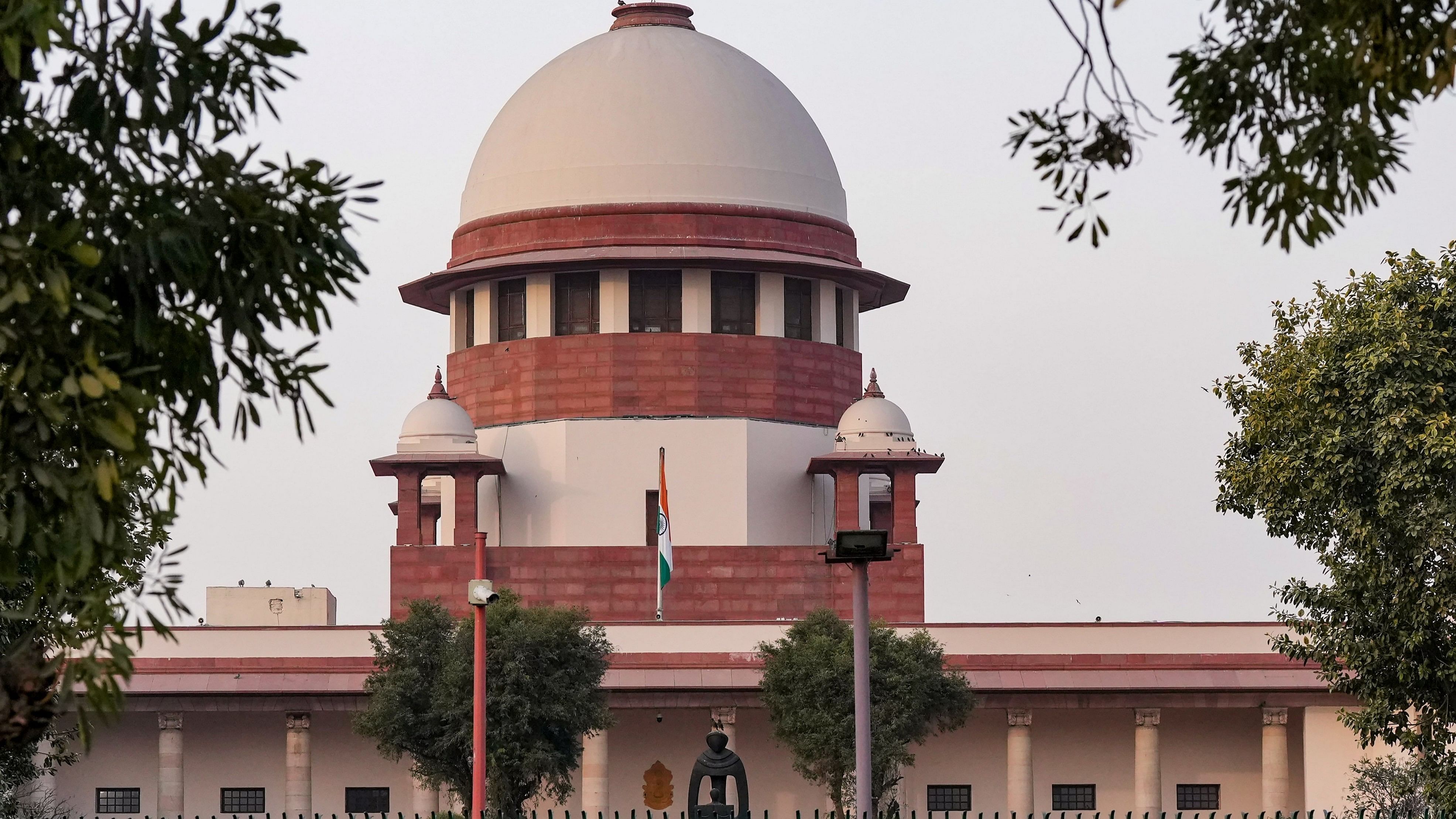
The Supreme Court of India.
Credit: PTI File Photo
New Delhi: Taking a grim view of the non-payment of the salary of Patna High Court judge Rudra Praksah Mishra for months, the Supreme Court directed the Bihar government on Monday to release the dues to him after opening a temporary General Provident Fund (GPF) account for him.
"No judge can be expected to work without the payment of the salary," a bench comprising Chief Justice D Y Chandrachud and Justices J B Pardiwala and Manoh Misra said while expressing its displeasure over the issue.
Justice Mishra, who got elevated to the Patna High Court from the district judiciary on November 4, 2023, is not getting his salary from the date of his elevation as he does not have a GPF account, a condition precedent for the release of the salary of a high court judge.
Trial court judges are covered under the New Pension Scheme (NPS) and consequently, they do not have GPF accounts. Justice Mishra was unable to get his salary as high court judges are not covered by the NPS.
"Why is he not getting the salary? What is this? We will pass an interim order for the release of his salary," the bench said and added that it will direct the Bihar government to open a temporary GPF account for Justice Mishra.
Solicitor General Tushar Mehta, who appeared in the court on behalf of the Centre, sought time till Friday and assured the bench that the issue will be sorted by then.
"But he is a sitting judge. We will direct a temporary GPF account to be opened," the CJI said.
The bench noted in its order that Justice Mishra was under the NPS and "once he became a high court judge, he was at par with other high court judges in same terms and conditions of service. An interim order is required since no judge can be expected to work without the payment of the salary".
"Thus, the state of Bihar is directed to pay all pending salaries and arrears from the date he was entitled and that a temporary General Provident Fund account is opened," it added.
The top court had, on August 27, agreed to hear the case of Justice Mishra.
It had also issued notices on other petitions relating to the pension and pay of serving and former high court judges.
Senior advocate K Parameswar, who is assisting the bench as an amicus curiae, had said Justice Mishra was not getting his salary as the Bihar government said it had brought the NPS.
"The whole issue pertains to 'One Rank, One Pension' for judicial officers and another matter relating to the pensions of high court judges in old pension schemes and new pension schemes by states," Parameswar had said.
"There cannot be a difference between the pensions of the judges belonging to the same cadre," the CJI had said.
Prior to this, the bench had, on January 12, agreed to hear the plea of Justice Mishra. The judge is seeking judicial intervention for opening his GPF account and releasing his salary.
The bench had then issued notices to the Centre and others, including the Bihar government, seeking their responses to the petition.
Justice Mishra's counsel had requested the bench to pass an interim order to open a temporary GPF account for the petitioner.
"The petitioner is a sitting judge of the High Court of Judicature Patna, Bihar, who has been elevated as a judge of the high court from superior judicial service of the state and is seeking the kind indulgence of this court, inter alia, for the opening of his GPF account, release of his salary etc.," said the plea, filed through advocate Prem Prakash.
The plea said after Justice Mishra's elevation as a high court judge, he was not allotted a GPF account despite having submitted the relevant documents.
"A reasonable apprehension of being deprived of the GPF benefits due to the conundrum over the shift from the NPS to the GPF (under the Old Pension Scheme) account is causing immense mental and financial harassment to the petitioner. The petitioner preferred not to take his salary from the month of November 2023 onwards," the petition said.
Besides other prayers, the plea has sought a declaration from the apex court that the petitioner is entitled to subscribe to GPF accounts in terms of section 20 of the High Court Judges (Salaries and Conditions of Service) Act, 1954.